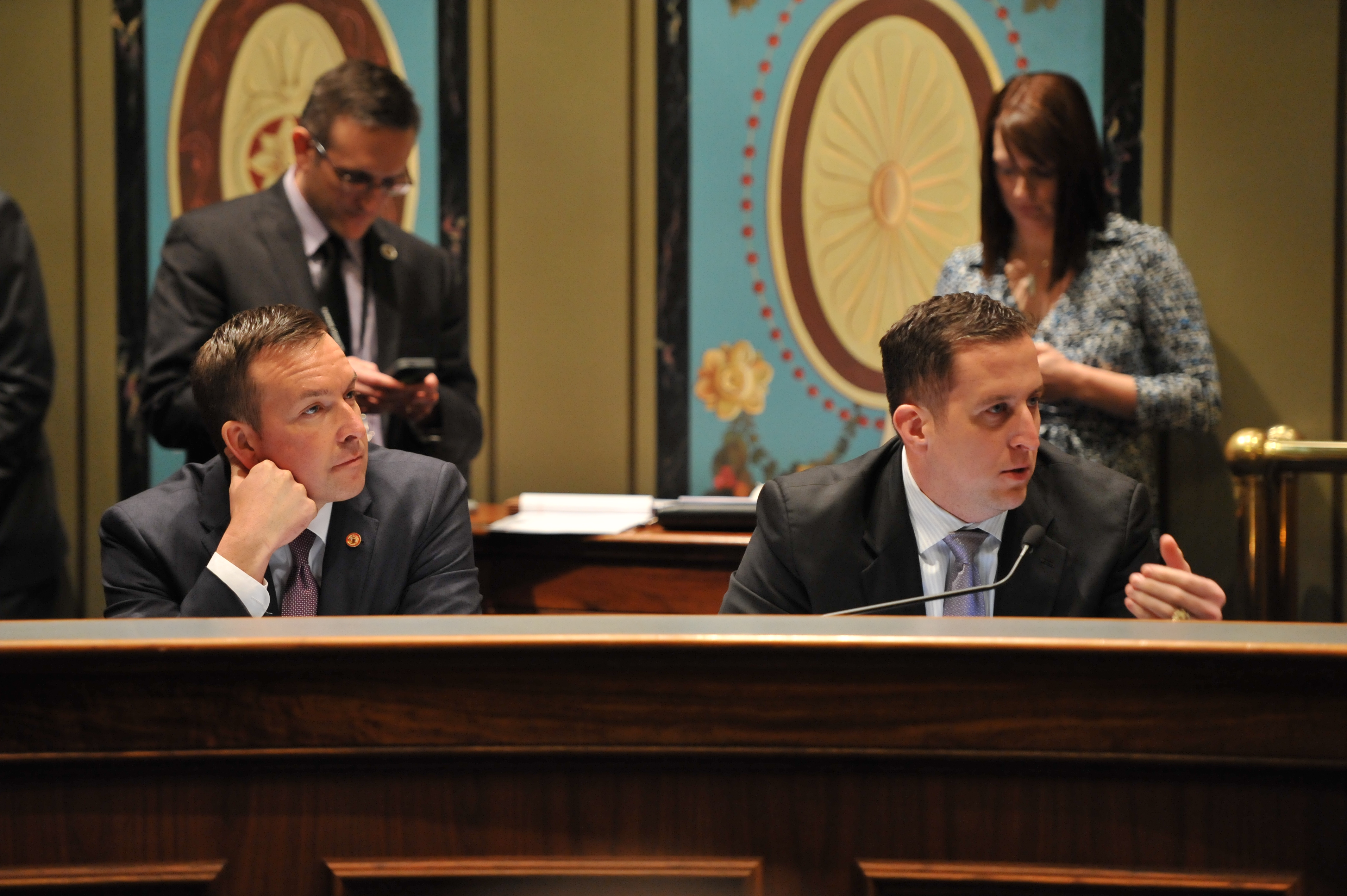- Details
- Category: Press Releases
 SPRINGFIELD – The Illinois Senate has reconvened for their fall session to consider legislation that the governor either outright vetoed or amended. One piece of legislation would give home health workers and personal assistants a minimum wage of $15 per hour.
SPRINGFIELD – The Illinois Senate has reconvened for their fall session to consider legislation that the governor either outright vetoed or amended. One piece of legislation would give home health workers and personal assistants a minimum wage of $15 per hour.
“These home health workers and personal assistants are doing extremely difficult and stressful work,” Hastings said. “This proposal will give them a much needed wage increase, the opportunity for health insurance and the mandatory training they need to provide quality care to their clients.”
Senate Bill 2931, sponsored by State Senator Michael E. Hastings (D-Tinley Park), would raise the minimum wage from $13 per hour. Many home health care workers throughout the state are living in poverty, only making $17,000 a year, as they continue to try and put others needs before their own.
“These are people who have committed to putting others first,” Hastings said. “But when they can’t provide for their own families they can no longer commit to the people they desire to serve. These people want to serve and we should be helping them by ensuring they can provide for their own needs.”
The legislation now moves to the House for an override vote.
- Details
- Category: Press Releases
 MOLINE -- Illinois Public Transportation Association, which includes every major transit organization in the State of Illinois, named Senator Michael E. Hastings the Legislator of the Year for 2016.
MOLINE -- Illinois Public Transportation Association, which includes every major transit organization in the State of Illinois, named Senator Michael E. Hastings the Legislator of the Year for 2016.
"This is a distinct honor coming from a group of individuals committed to ensuring the people of Illinois first class public transportation," Hastings said.
Senator Hastings was lauded for his work with the PACE Bus System in the south suburbs where he passed legislation allowing for the purchase of compressed natural gas buses, the construction of a new compressed natural gas fueling station, and assisted the RTA to ensure that they are able to operate during the financial crisis facing Illinois.
"I am proud to work with people like Rocky Donahue of PACE, my fellow legislators and community leaders to ensure that the people of the south suburbs have great public transportation. We have done great things and I am committed to continuing my efforts to advocate for transportation in the south suburbs."
- Details
- Category: Press Releases
 NEW LENOX— State Senator Michael Hastings (D-Tinley Park) met with a Chinese delegation of faculty from the Zhejiang Institute of Administration earlier this month. Among the topics of conversation were municipal and state government and the various roles of a State Senator.
NEW LENOX— State Senator Michael Hastings (D-Tinley Park) met with a Chinese delegation of faculty from the Zhejiang Institute of Administration earlier this month. Among the topics of conversation were municipal and state government and the various roles of a State Senator.
“Taking the time to meet with foreign dignitaries is a way to build bridges between cultures,” Hastings said. “I am extremely proud to present the south suburbs and the State of Illinois. Although we may have our challenges at times, I believe our democracy works and should be on display.”
The Chinese delegation works in partnership with the 21st Century Institute in Chicago. The delegation will visit Springfield and other historic sites throughout the State of Illinois.
“We chose to host this delegation in New Lenox, the home of the Proud Americans, because of its beauty and effective municipal government,” Hastings said. “Mayor Baldermann and the village staff gave presentations and answered numerous questions. The Chinese were very impressed by what they saw.”
- Details
- Category: Press Releases

Senate Bill 2173 expands access to the veteran’s designation for anyone who served in the reserves or National Guard even if they didn’t participate in active duty.
“National Guard members and reservists are veterans just the same as those who serve active duty,” Hastings said. “Their commitment to serving our state and country should be honored and recognized like any other veteran.”
The law goes effect immediately.
More Articles …
Page 69 of 89


